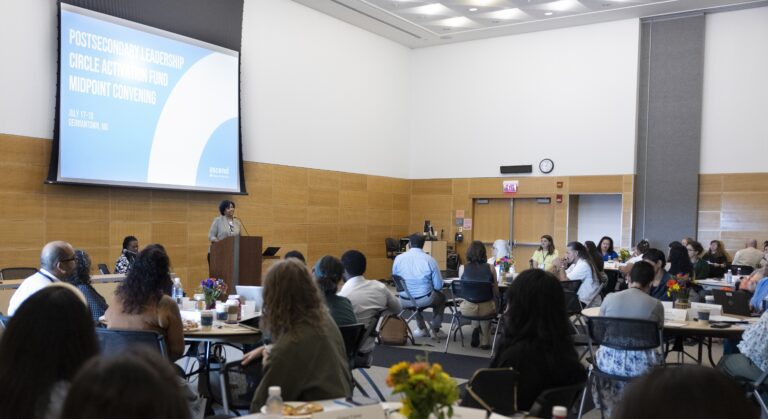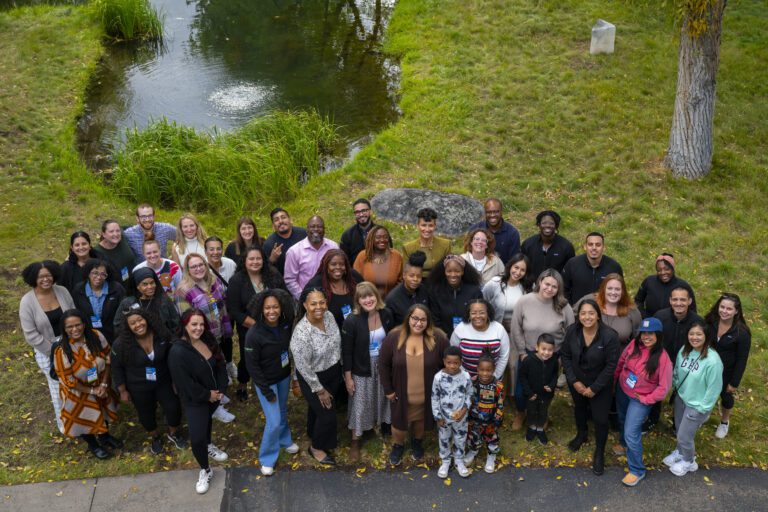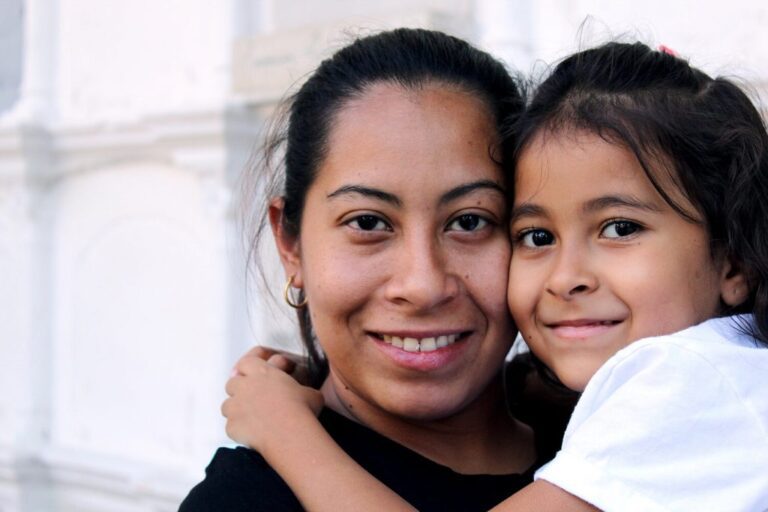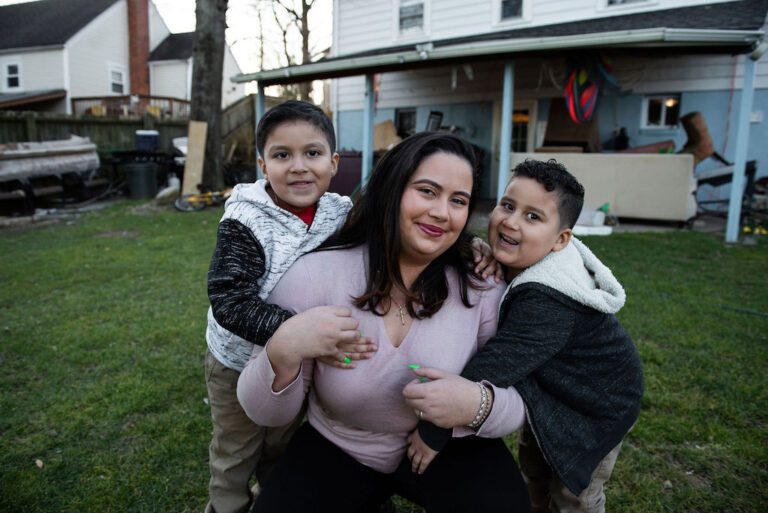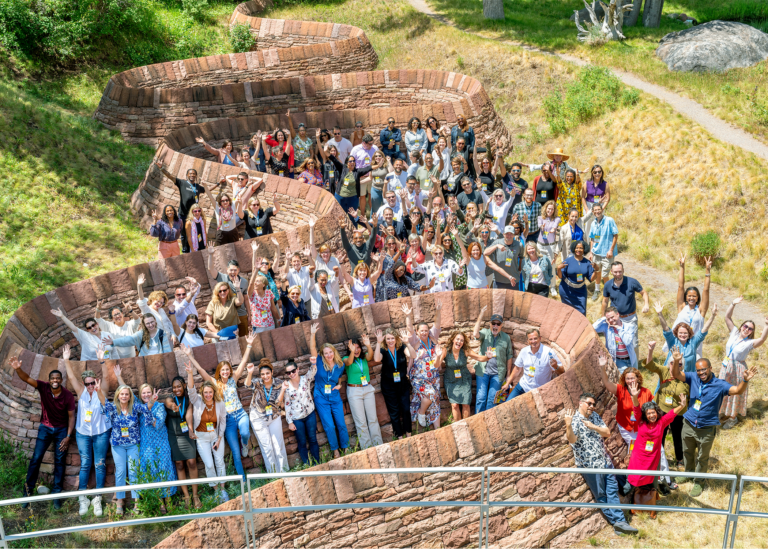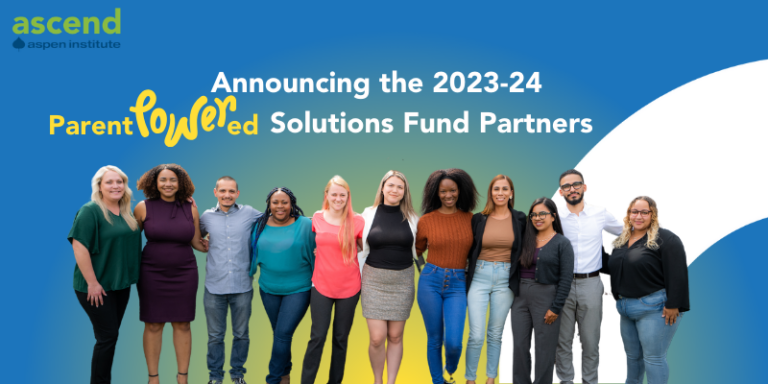New Study: Student Parents in College Experience Unique Mental Health Challenges but Lack Access to Support on Campus
Ascend at the Aspen Institute and The Jed Foundation Release a New Mental Health Framework with Recommendations for Supporting the Mental Health of Students Who Are Parents
Washington, DC – A new study released today by Ascend at the Aspen Institute (Ascend) and The Jed Foundation (JED) finds that more than two in five (43 percent) of the nearly four million student parents attending college in the United States experience extreme stress that affects their mental health and educational success. Financial stress and feelings of isolation on campus are major stressors for student parents, with 38% saying they considered dropping out in the last 30 days.
More than one in five college students in the U.S. is a parent. The report, Improving Mental Health of Student Parents: A Framework for Higher Education, is the first study to specifically focus on the mental health needs of parenting students, who are most likely to be women and students of color. With original survey research, a review of the literature, and recommendations, the report offers a framework for higher education leaders and policymakers to support the mental health of parenting students so that they and their children can thrive.
Key findings from the new study include:
- More than half of student parents say they were made to feel less welcome on campus. The figure was even higher (67 percent) among younger student parents ages 18-29. Only 37 percent of student parents said that they felt their college or university was supportive of student parents.
- Student parents, especially those over age 25, show remarkable resilience. Student parents often report a greater sense of purpose and meaning in their lives and have significantly lower rates of substance use behaviors than non-parents. They are also incredibly committed to their academic studies, engaging with their professors during office hours at much higher rates than their non-parenting peers.
- In addition to greater financial stress, student parents are less likely than non-parents to be able to afford mental health care.5 percent of parenting students find it at least somewhat difficult to pay for mental health care, compared with 10.3 percent of non-parents. And most are unaware of the services available on campus: less than half (47 percent) of student parents know about mental health outreach efforts on campus, compared with nearly 60 percent of non-parents.
The report outlines a framework of recommendations for colleges to support student parent mental health and improve graduation rates. JED and Ascend collaborated with parents, researchers, and higher education professionals to develop the framework which includes eight recommendations:
- Train counselors and other on-campus mental health providers on unique stressors faced by this population and specifically in trauma-informed care. Train faculty and staff in understanding and being sensitive to the unique stressors faced by parenting students to allow for a culture shift whereby parenting students are fully factored into professorial and staff decisions and policies.
- Create spaces on campus that meet the specific needs of student parents and help foster a sense of belonging among these students. This includes encouraging creation of spaces and activities for children at all school events.
- Facilitate affinity groups and mentoring programs for older and younger parenting students.
- Create policies that allow for flexibility for parenting students in the classroom.
- Regularly collect data on students who are parents – their mental health, their needs, their utilization of on-campus services, their feelings of connectedness and belonging on campus – in order to inform how to best support these students.
- Schools should create purposeful plans to help address the basic needs of parenting students.
- Identify strategies to ensure parents have reliable access to childcare, including on-campus childcare options.
- Make parenting students feel more “visible” by representing them on campus materials and creating customized orientation materials.
“The novel findings from our original research on parenting students illuminate a path forward for institutions of higher education seeking to better support these students,” said Sara Gorman, Director of Research and Knowledge Dissemination for JED. “These students endure incredible hardship but also show amazing resilience and are looking to their educational institutions to support them as they seek better lives for themselves and their children.”
“Student parents are superheroes, who go above and beyond to complete their degree and make a better life for their families. They should not have to be superhuman to get their degree,” said Anne Mosle, Vice President of the The Aspen Institute and Founder and Executive Director of Ascend at the Aspen Institute. “Higher education institutions must do more to support the mental health of their students, especially the growing population of students raising kids or providing care to other family members. Student parents have been overlooked for too long, and we hope this research and framework will be a useful guide for higher education institutions to ensure that student parents receive the mental health support they need so that they and their children can thrive.”
The framework will be integrated into JED’s Higher Education Program, JED Campus, which is currently implemented at more than 300 colleges and universities. This work is part of the Aspen Postsecondary Success for Parents Initiative, which launched in 2018 and is supported by Imaginable Futures and ECMC Foundation.
DOWNLOAD: Improving Mental Health of Student Parents: A Framework for Higher Education
DOWNLOAD: A Framework Overview Summary
DOWNLOAD: Original Research Findings
WATCH: The Student Parent Mental Health Webinar
Media Contacts:
Ascend at the Aspen Institute
Brendan Creamer
Brendan.Creamer@aspeninstitute.org
The Jed Foundation (JED)
Keisha Anderson
keisha@jedfoundation.org
###
Ascend at the Aspen Institute
Ascend at the Aspen Institute is the national hub for breakthrough ideas and collaborations that move children and their parents toward educational success, economic security, and health and well-being. We embrace a commitment to racial equity and a gender lens. For more information, visit ascend.aspeninstitute.org.
Connect with Ascend at the Aspen Institute: Email | Twitter | Facebook
The Aspen Institute
The Aspen Institute is a global nonprofit organization committed to realizing a free, just, and equitable society. Founded in 1949, the Institute drives change through dialogue, leadership, and action to help solve the most important challenges facing the United States and the world. Headquartered in Washington, DC, the Institute has a campus in Aspen, Colorado, and an international network of partners. For more information, visit aspeninstitute.org.
Connect with The Aspen Institute: Email | Twitter | Facebook | Instagram | YouTube | LinkedIn
The Jed Foundation (JED)
JED is a nonprofit that protects emotional health and prevents suicide for our nation’s teens and young adults. We’re partnering with high schools and colleges to strengthen their mental health, substance misuse, and suicide prevention programs and systems. We’re equipping teens and young adults with the skills and knowledge to help themselves and each other. We’re encouraging community awareness, understanding, and action for young adult mental health.
Learn more at jedfoundation.org. Check out our programs including: JED Campus (jedcampus.org), Set to Go (settogo.org), ULifeline (ulifeline.org), Half of Us (halfofus.com), Love is Louder (loveislouder.com), and Seize the Awkward (seizetheawkward.org).
Connect with JED: Email | Twitter | Facebook | Instagram | YouTube | LinkedIn
Related Posts






